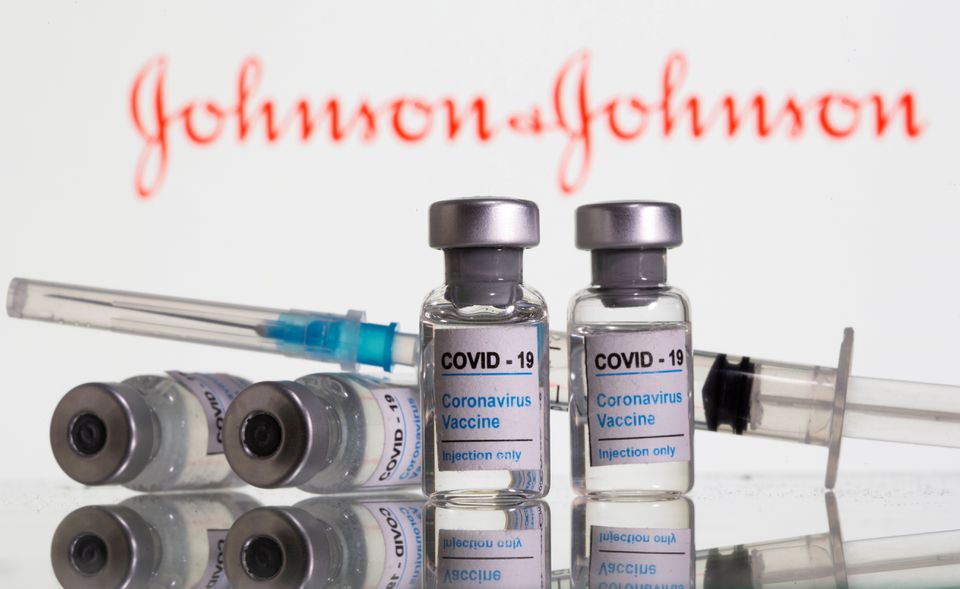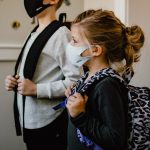picture credit – REUTERS / Dado Ruvic / Illustration
By Jacob Swenson
WASHINGTON — With the US coronavirus death toll reaching 566,000 the vaccine is in great demand. As of April 13th, the Johnson & Johnson produced vaccine has been halted at the urging of US health officials due to the occurrence of a rare clotting disorder catalyzed by the vaccine in six American women. As reported by the New York Times, more than 7 million people have received the Johnson & Johnson vaccine, indicating that the disorder is extremely rare. While the vaccine in question had been halted in government run vaccination sites, some of the bigger chains that maintain pharmacies, one’s that reside in Skagit County including Rite Aid, Walgreens, and Walmart, have also paused their injections. Despite this setback, the Moderna and Pfizer vaccines, both CDC approved, are still available to those currently eligible for the immunization.
Currently, groups eligible for the vaccine, designated by the CDC are as follows: healthcare personnel, long term care facility residents, essential workers, people aged 75 years and older, people aged 64 to 75, and people aged 16-64 with underlying medical conditions. Also as maintained by the CDC, the Johnson & Johnson vaccine is a single dose injection in contrast to Moderna and Pfizer, both of which are a 2-dose series. The latter vaccines are effectively different from Johnson & Johnson and, as brought up by the New York Times, have yet to see any evidence of similar blood clot cases or any other issue in that regard. Dr. William Petri, an infectious disease physician and immunologist from the University of Virginia School of Medicine, addresses the halt of the Johnson & Johnson vaccine in an interview with The Conversation. Petri warns, “the potential side effect is a blood clot in the veins that drain blood from the brain”. As detailed by the New York Times, controversy about whether it is worthwhile to protect against such a rare disease has been raised by public health experts. Although one of the blood clot victims died from her condition, and a second has been hospitalized, Petri stated, “ …this type of blood clot is treatable with the use of blood thinners or anticoagulants.” He went on to say that if left untreated the clots can be fatal. Petri says that recently, “the CDC convened a meeting of the Advisory Committee on Immunization Practices on April 14… but did not vote on recommendations because…not enough time has passed to see whether other people might also experience these serious clots.” He mentions that the committee is expected to meet again between a week and 10 days from then. While it isn’t yet confirmed, “…efforts are being made to determine if the clotting disorder is related by chance or a true, but extremely rare, side effect of the J&J vaccine.” Experts in the field, including Petri and Dr. Anthony Fauci, have acknowledged similarities between Johnson & Johnson’s vaccine and another vaccine, produced by AstraZeneca and Oxford University, that was used in Europe. Both single dose vaccines have resulted in what Petri calls “a similar problem of blood clotting with low platelets in the cerebral venous sinus and also in the abdominal veins and arteries…” In both cases, the number of clots and number of administered vaccines were roughly 1 in 1 million people vaccinated. But while these two vaccines have been put on hold, the aforementioned Moderna and Pfizer vaccines are still readily available alternatives.
According to the New York Times, as of April 16th, Skagit County has experienced 5,021 known cases of Covid-19, and 67 Covid related deaths have been recorded. The transition back to normalcy will be, as President Joe Biden predicted back in January, a time consuming process however the first steps necessary to regain order and routine are being taken. As the state widens the eligibility for a vaccine, schools have begun to reopen their doors and welcome students back onto campus. As stated by the Washington State Department of Health those over the age of sixteen, college students making up the majority of this population, can now set an appointment or walk in to clinics, doctor offices and other sites to receive the coronavirus vaccine. Skagit Valley College, like most universities and colleges in Washington, is primarily operating online with the exception of labs and classes that require hands-on learning, according to SVC’s website. Instruction is done through Canvas and virtual meetings on Zoom and Google Meet, and most services such as counseling and advising, as well as admissions and enrollment are accessed through SVC’s website or over the phone. It was previously estimated for students to return to campus for the 2021 fall quarter however students can expect the virtual format for the time being, as it will continue through the fall. Now is the time for students and school staff to get the coronavirus vaccination in order to prepare for a transition back to in-person schooling.






